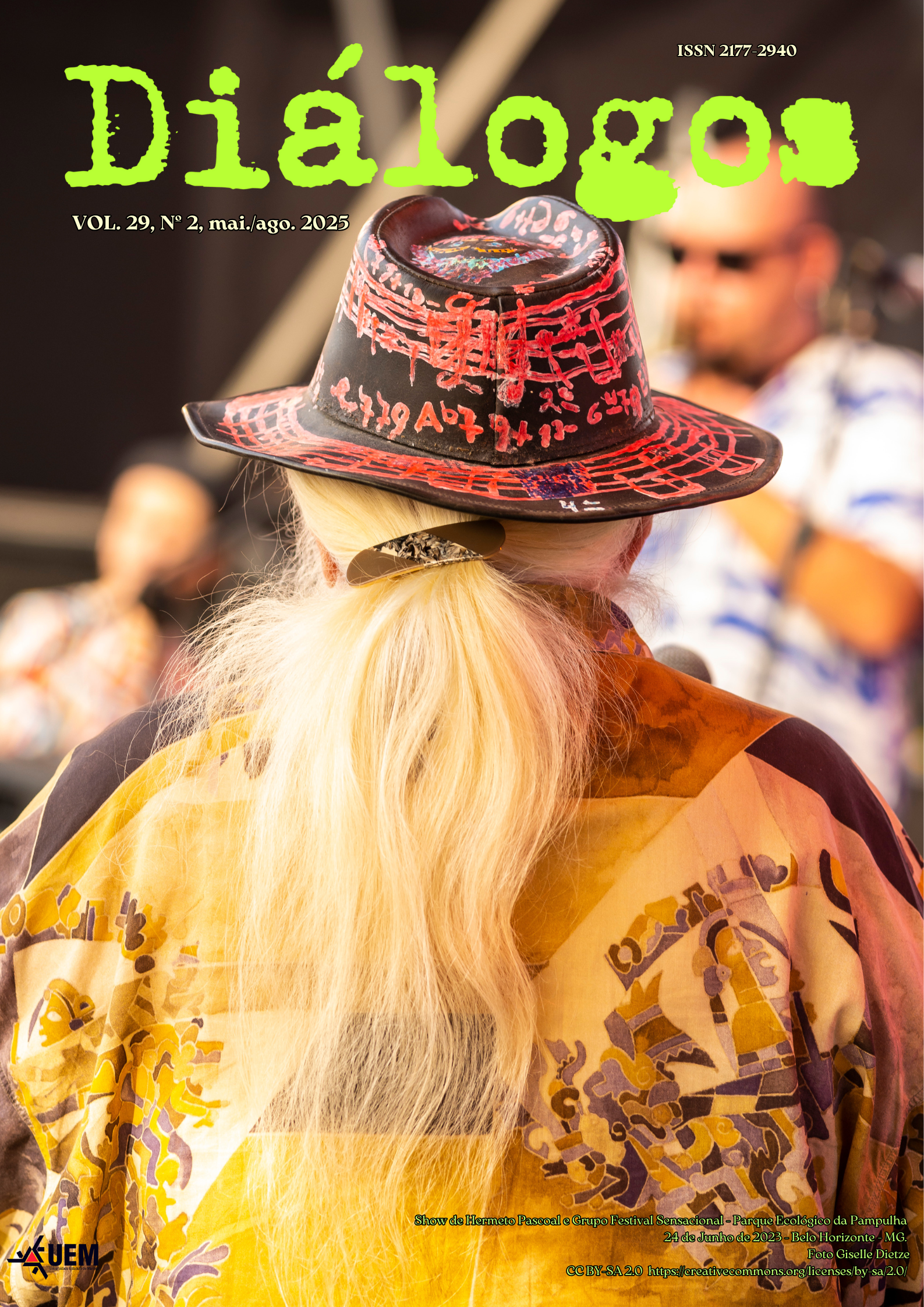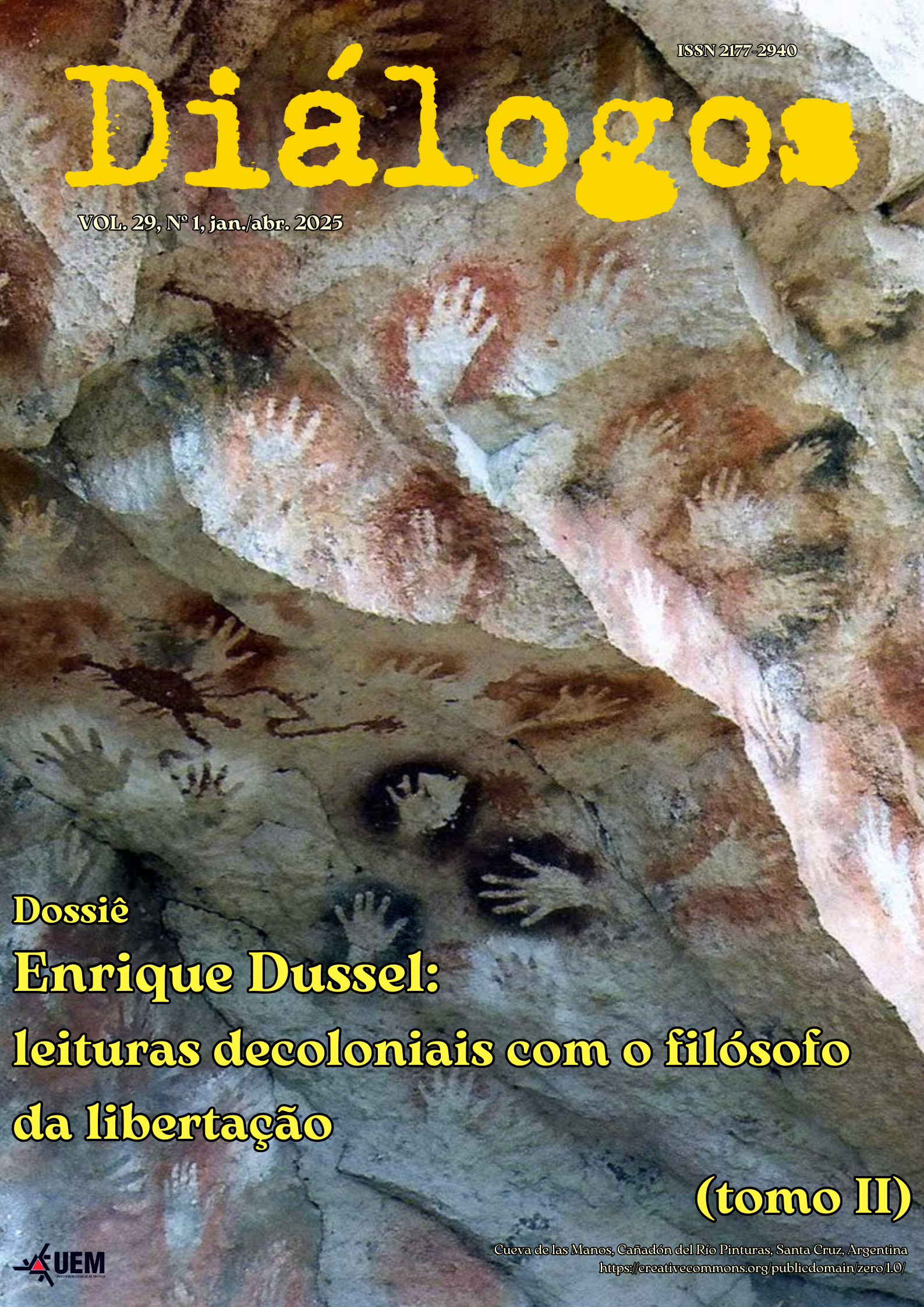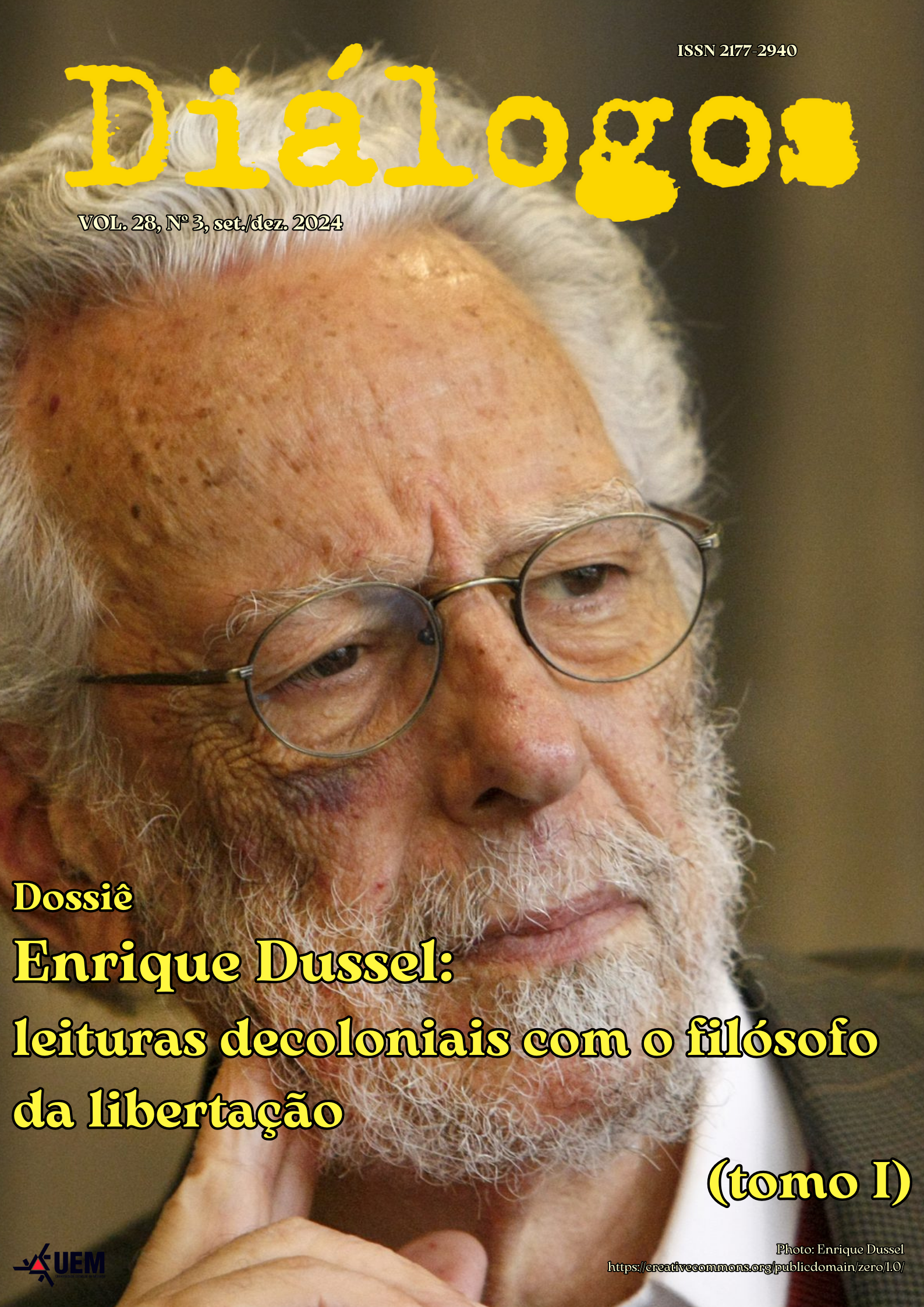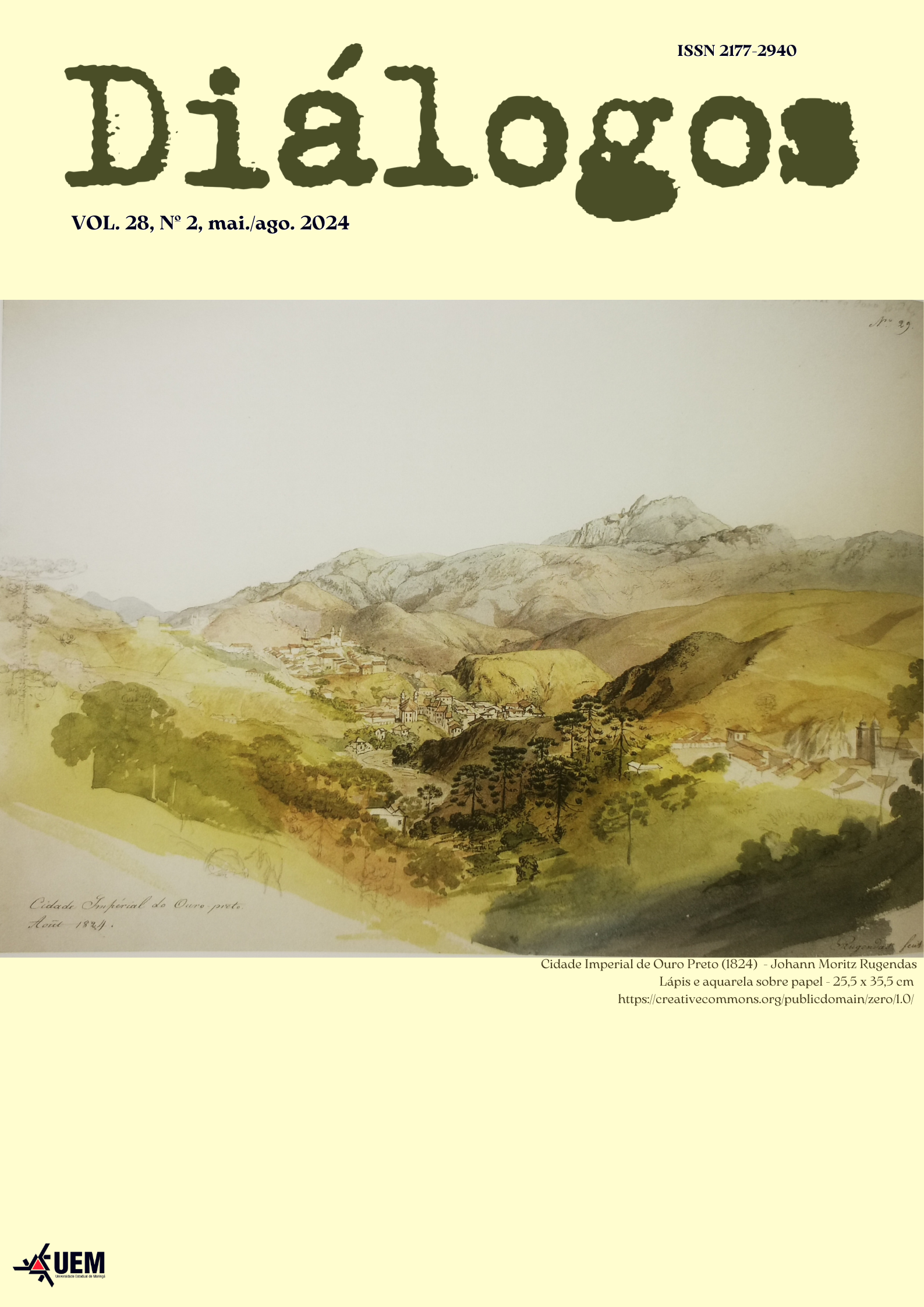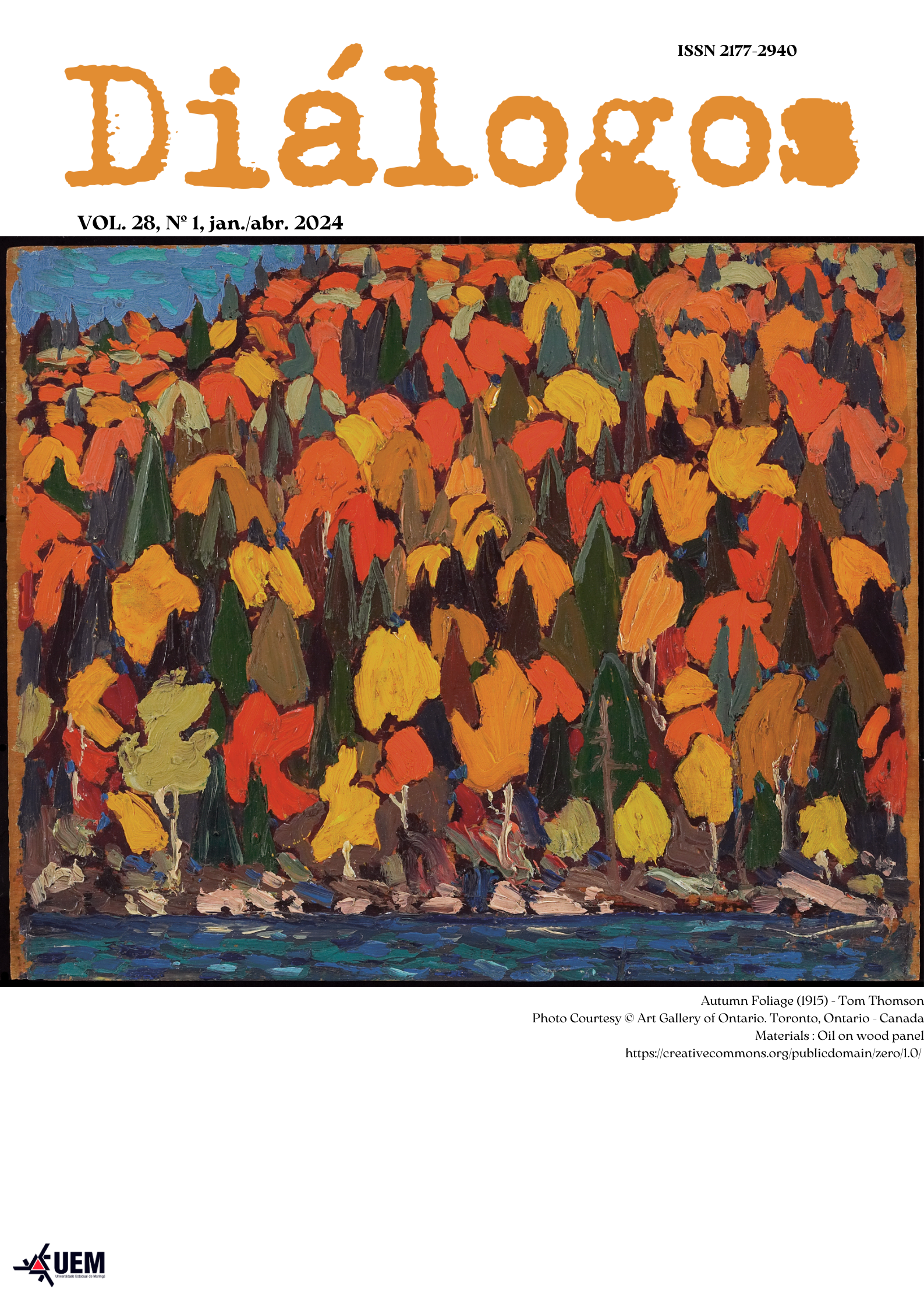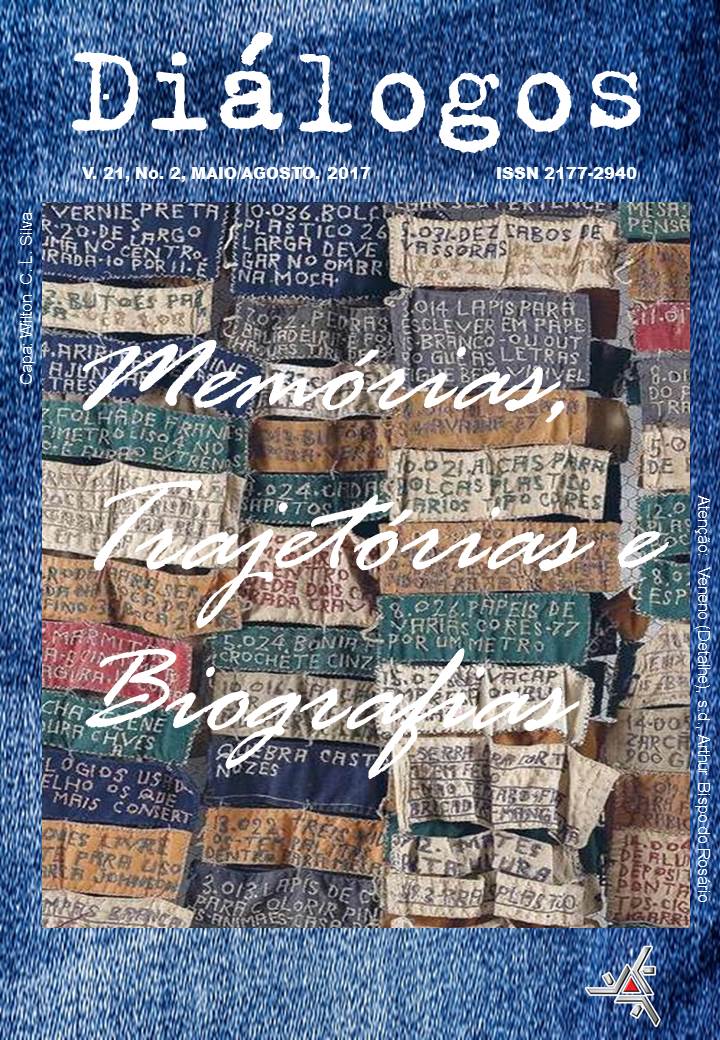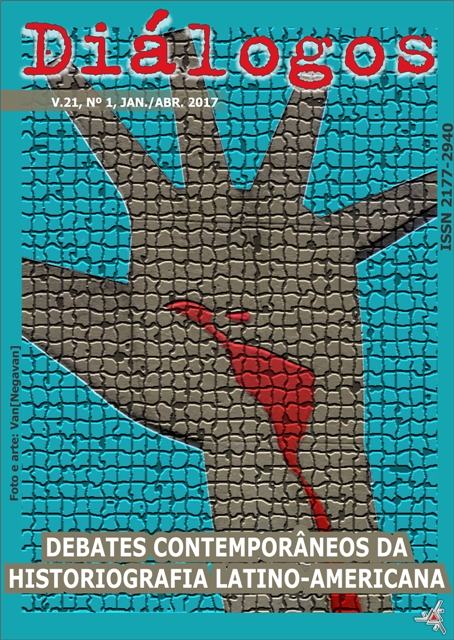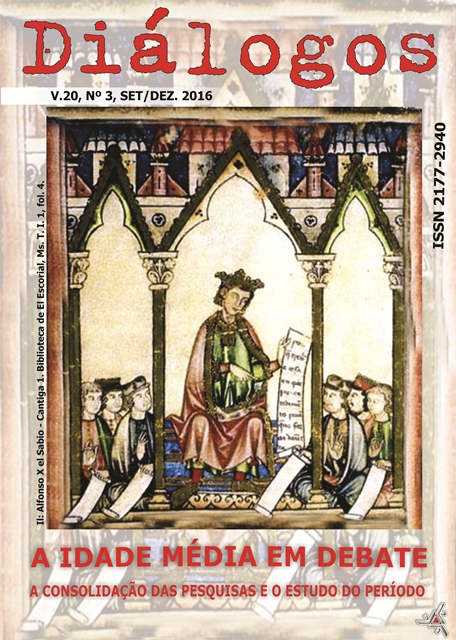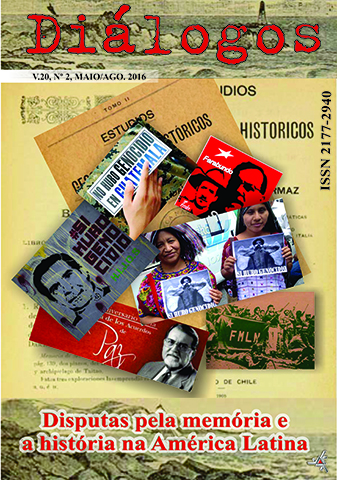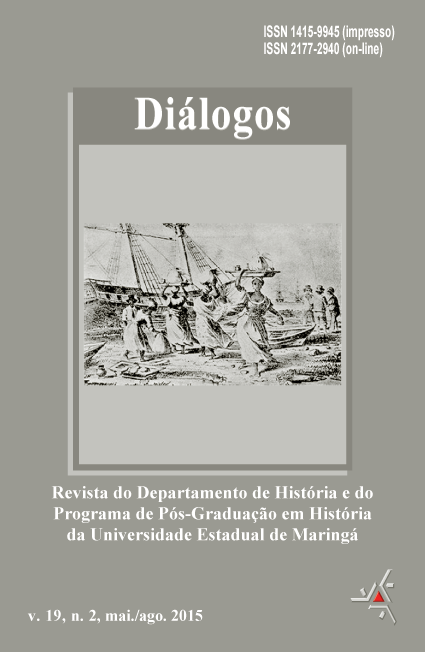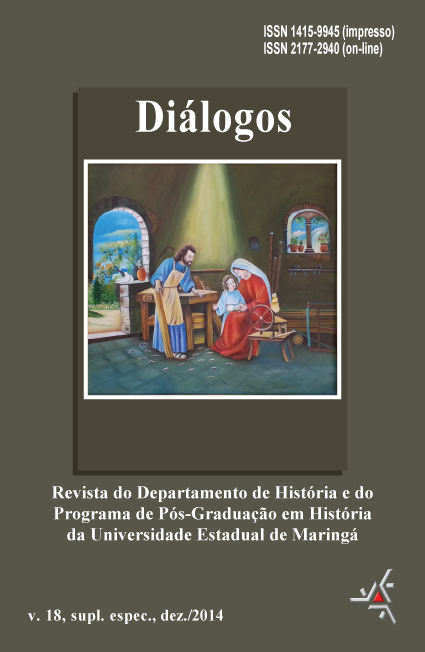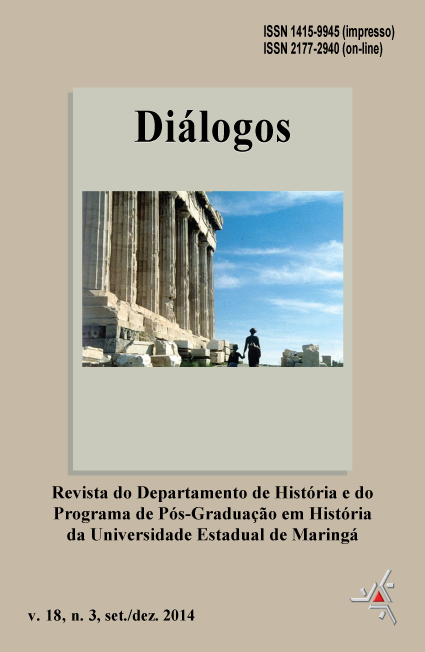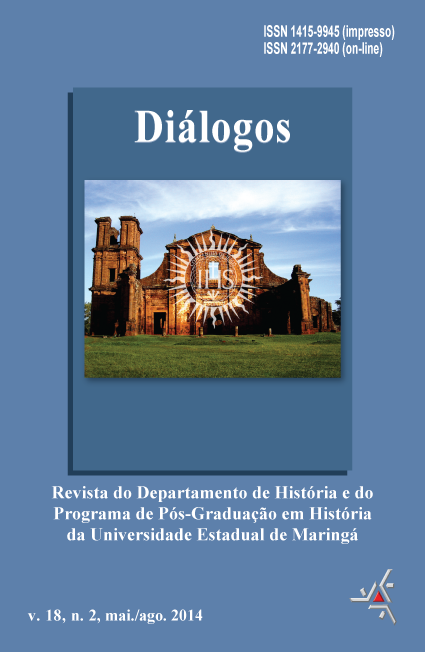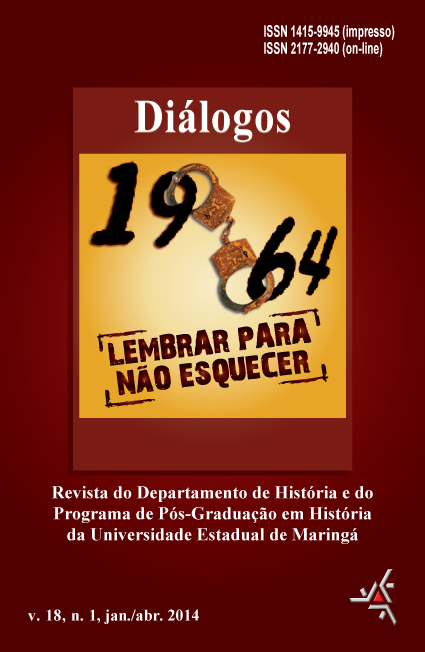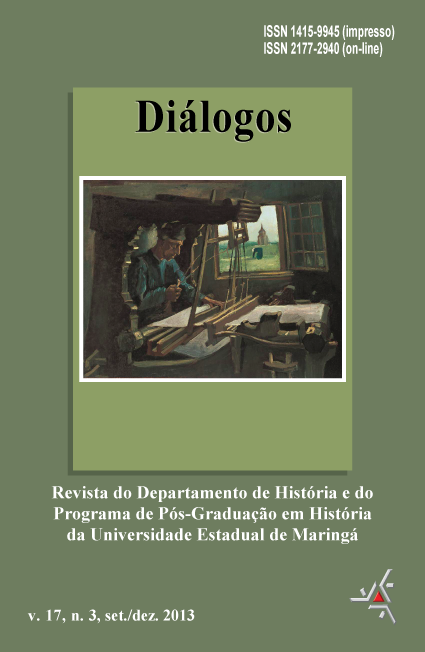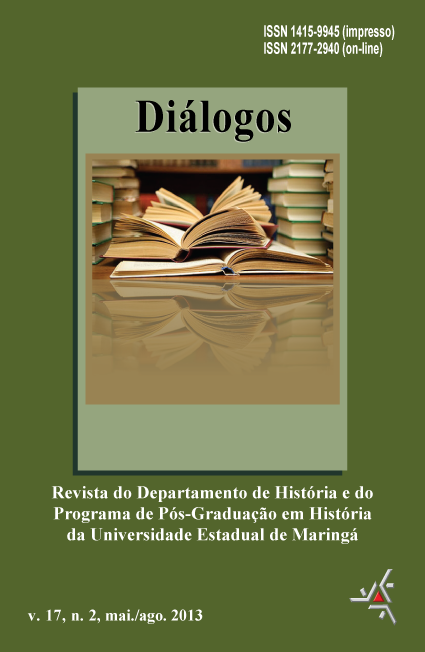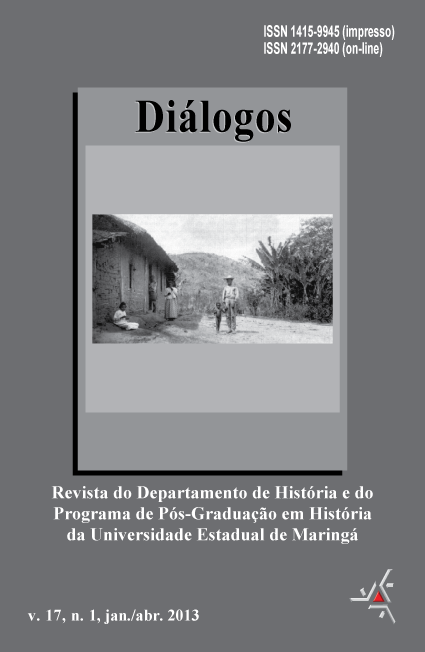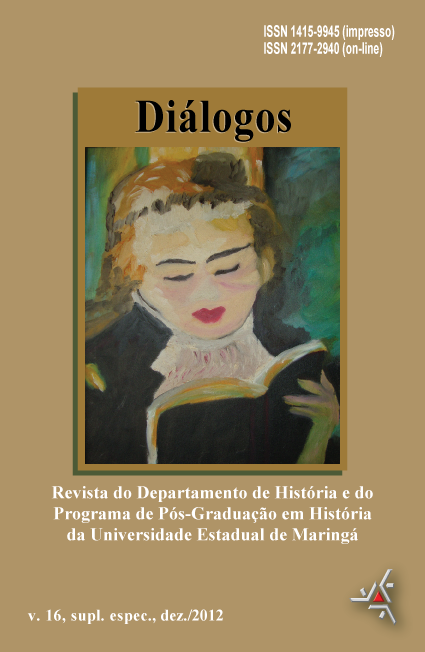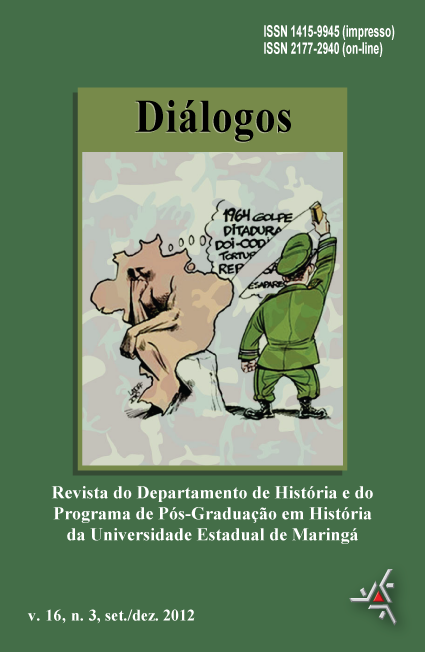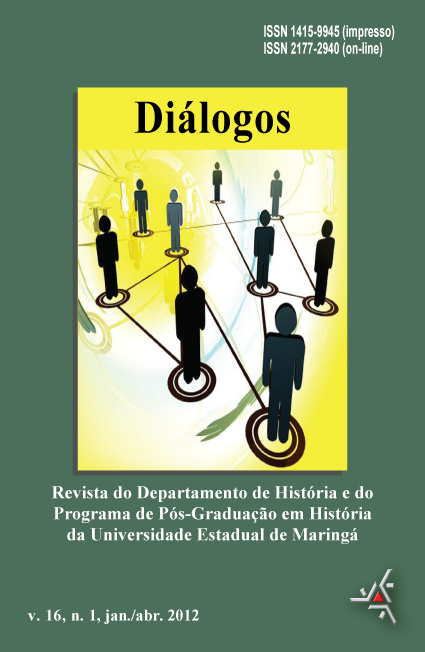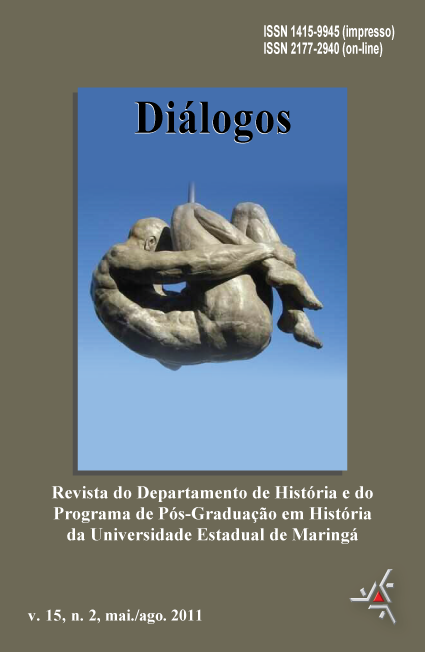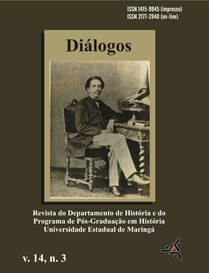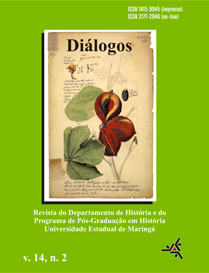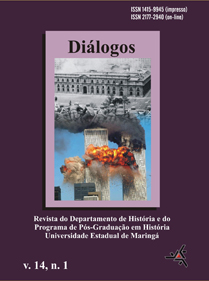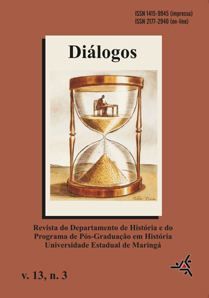
-
 Narcisos insubmissos: autorrepresentação, identidade e diferença nas artes visuais ibero-americanas
Bd. 27 Nr. 3 (2023)
Narcisos insubmissos: autorrepresentação, identidade e diferença nas artes visuais ibero-americanas
Bd. 27 Nr. 3 (2023)Diante da compreensão de que compartilhamos um passado histórico e sociocultural recente e similar (semiperiférico, ditatorial, colonial, cristão, monoteísta patriarcal), o que as artes ibero-americanas teriam a dizer sobre as ficções dominantes e com que ferramentas estéticas e dissensuais fariam frente a um consenso policialesco de gênero, sexualidade, raça e classe social? Que cenas, gestos e rostos, mesmo que transitórios, ambíguos e relacionais, poderiam perturbar determinados regimes policialescos não apenas de raça, gênero e classe, mas também perturbar as próprias ficções dominantes no campo das artes? Com este número, pretendemos analisar então as operações discursivas e estéticas que ocorrem quando são as subjetividades subalternas que representam a si mesmas, em vez de serem retratadas a partir do olhar de um Outro hegemônico que frequentemente procura coisificá-las, dominá-las e observá-las de uma distância que não contamine sua subjetividade.
-
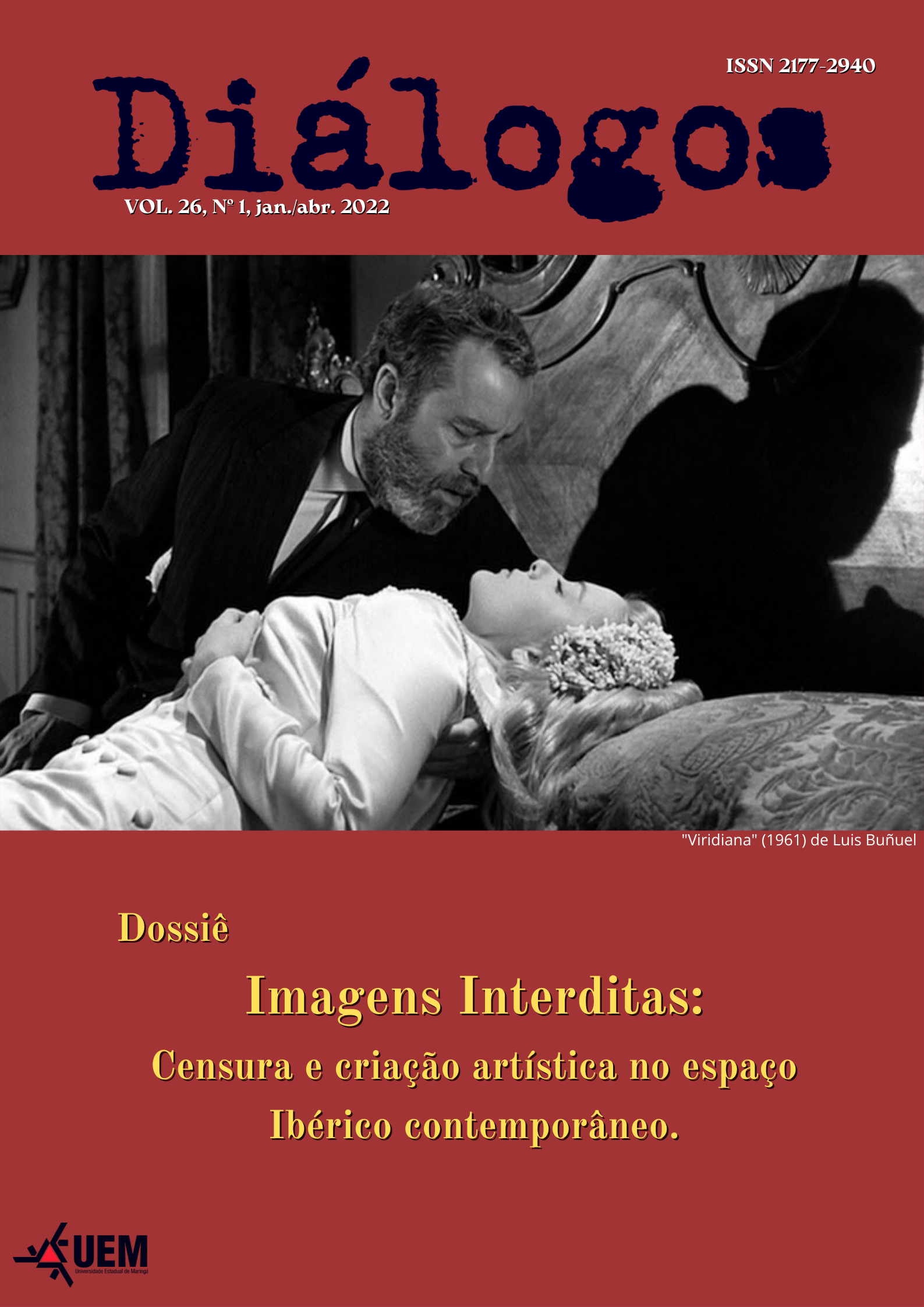 Dossiê: Imagens Interditas: censura e criação artística no espaço ibérico contemporâneo.
Bd. 26 Nr. 1 (2022)
Dossiê: Imagens Interditas: censura e criação artística no espaço ibérico contemporâneo.
Bd. 26 Nr. 1 (2022)Qual a diferença entre as imagens que passam diante dos nossos olhos e aquelas que o imaginário produz? Quais as mais poderosas e “subversivas”? O que justifica, nesse caso, a censura? As imagens em si, os seus propósitos ou os seus usos? São as imagens que são censuradas ou o que pensamos e fazemos depois com elas? A tensão entre visibilidade e invisibilidade, entre imagem vista e imagem imaginada, endereça-nos para as complexas relações entre literatura e artes visuais.
A tentativa de controlar o discurso público legitimando certas vozes e relegando outras ao silêncio constitui um dos principais objetivos da censura. Esta está intimamente ligada ao exercício da coerção estatal com o fim de se impor uma ideologia a pretexto da proteção dos valores de uma sociedade.
Grande parte do século XX ibérico foi marcado pela censura imposta por regimes ditatoriais (em especial o Estado Novo e o Franquismo) que visavam todas as formas de expressão, principalmente a comunicação social, o cinema e a literatura. Em paralelo surgem fenómenos de resistência, seja abertamente, seja na clandestinidade, que desenvolveram movimentos como o neo-realismo em Portugal e o tremendismo em Espanha. Nesse país, após o fim da Guerra Civil, grande parte dos intelectuais emigraram, construindo, então, uma impressionante literatura de exílio, contando uma versão alternativa à História propagada pelo regime vencedor.
-
 Dossiê: Religiões mediúnicas e afro-brasileiras.
Bd. 25 Nr. 3 (2021)
Dossiê: Religiões mediúnicas e afro-brasileiras.
Bd. 25 Nr. 3 (2021)É urgente uma discussão historiográfica, em colaboração com as demais áreas do conhecimento, que preze pelo respeito e o reconhecimento às diferentes formas de crenças religiosas, bem como daqueles que não professam religião alguma. Como alertava Marc Bloch (2001) em Apologia da História ou ofício do historiador, não se trata de compreender apenas a fidelidade a uma crença, mas a historicidade da mesma. Os processos que cercearam, impulsionaram ou estimularam suas configurações. Trata-se de compreender os jogos de poder, os acertos e negociações, individuais ou coletivos que contribuíram para o desenvolvimento dos mais distintos processos históricos que moldam e são igualmente moldados pela religião.
-
 Dossiê: As doenças têm história.
Bd. 25 Nr. 2 (2021)
Dossiê: As doenças têm história.
Bd. 25 Nr. 2 (2021)Em As doenças têm história, Jacques Le Goff (1997) baliza alguns dos paradigmas que irão nortear o historiador que pretende adentrar esse campo da condição humana. Para Le Goff, o fenômeno doença não poderia ser circunscrito a uma história dos progressos científicos e tecnológicos. De fato, a história de uma doença também deve ser a história dos saberes e das práticas culturais que se encontram conectadas às suas respectivas estruturas sociais, instituições, representações, mentalidades (LE GOFF, 1997, p. 7-8). A partir de diferentes abordagens e recortes temporais, os pesquisadores que compõem o Dossiê aqui apresentado buscam analisar e contextualizar as diferenças circunstâncias em que doença, anormalidade e patologia surgem.
-
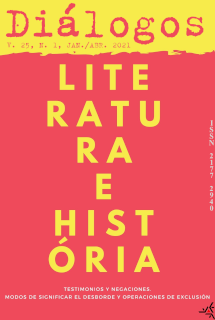 Literatura e Historia: testimonios y negaciones. Modos de significar el desborde y operaciones de exclusión.
Bd. 25 Nr. 1 (2021)
Literatura e Historia: testimonios y negaciones. Modos de significar el desborde y operaciones de exclusión.
Bd. 25 Nr. 1 (2021)Los trabajos que se presentan en esta mesa redonda cuestionan, desde el análisis de producciones literarias específicas, los modos de representación de la realidad nacional con que los discursos oficiales escribieron su historia. Las nociones de desborde (Matos Mar, 2004) y negación (Kusch, 1975) en su relación dialéctica de oposición, contraste y tensión, estructuran las hipótesis de sentido que progresan, de manera fundamentada y certera, a lo largo de las investigaciones. De este modo, se hace evidente la manera en que el discurso historiográfico se asienta sobre parcialidades ideológicas que generan subalternidades. Sin embargo, por medio de una revisión atenta, concretamente desde la literatura y su específica habilidad de recrear imaginarios sociales, podríamos apropiarnos de los sentidos subliminales, de las voces silenciadas y de las identidades marginales que en ese espacio circulan.
-
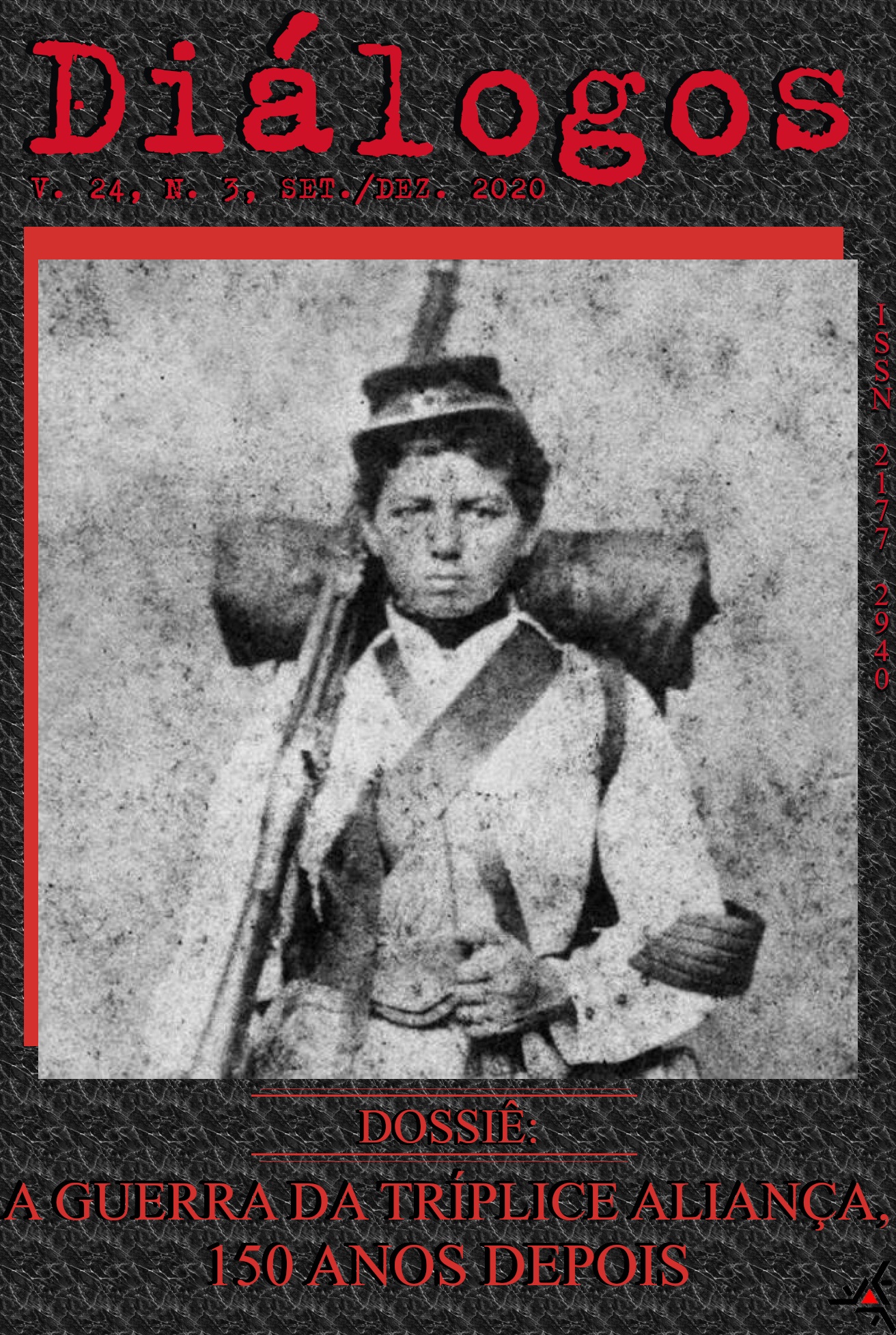 A Guerra da Tríplice Aliança, 150 anos depois
Bd. 24 Nr. 3 (2020)A realização do VII Simpósio Internacional de História Global e das Relações Internacionais, sob o tema “A Guerra do Paraguai: 150 anos depois”, organizado pelo curso de bacharelado em Relações Internacionais e pelo Programa de Pós Graduação em Estudos Estratégicos da Universidade Federal Fluminense, levou a especialistas de diferentes áreas a apresentarem seus trabalhos e reunirem um numeroso público de diversas regiões do Brasil, do Paraguai, da Argentina e do Uruguai, evidenciando a atualidade e a necessidade dessa renovação nas pesquisas. Este dossiê traz parte dos trabalhos apresentados nas diferentes mesas redondas do Simpósio, além de somar a participação de pesquisadores de diversos países, na tentativa de oferecer esse olhar diverso, múltiplo e inovador que as novas leituras sobre a Guerra Guasu oferecem.
A Guerra da Tríplice Aliança, 150 anos depois
Bd. 24 Nr. 3 (2020)A realização do VII Simpósio Internacional de História Global e das Relações Internacionais, sob o tema “A Guerra do Paraguai: 150 anos depois”, organizado pelo curso de bacharelado em Relações Internacionais e pelo Programa de Pós Graduação em Estudos Estratégicos da Universidade Federal Fluminense, levou a especialistas de diferentes áreas a apresentarem seus trabalhos e reunirem um numeroso público de diversas regiões do Brasil, do Paraguai, da Argentina e do Uruguai, evidenciando a atualidade e a necessidade dessa renovação nas pesquisas. Este dossiê traz parte dos trabalhos apresentados nas diferentes mesas redondas do Simpósio, além de somar a participação de pesquisadores de diversos países, na tentativa de oferecer esse olhar diverso, múltiplo e inovador que as novas leituras sobre a Guerra Guasu oferecem. -
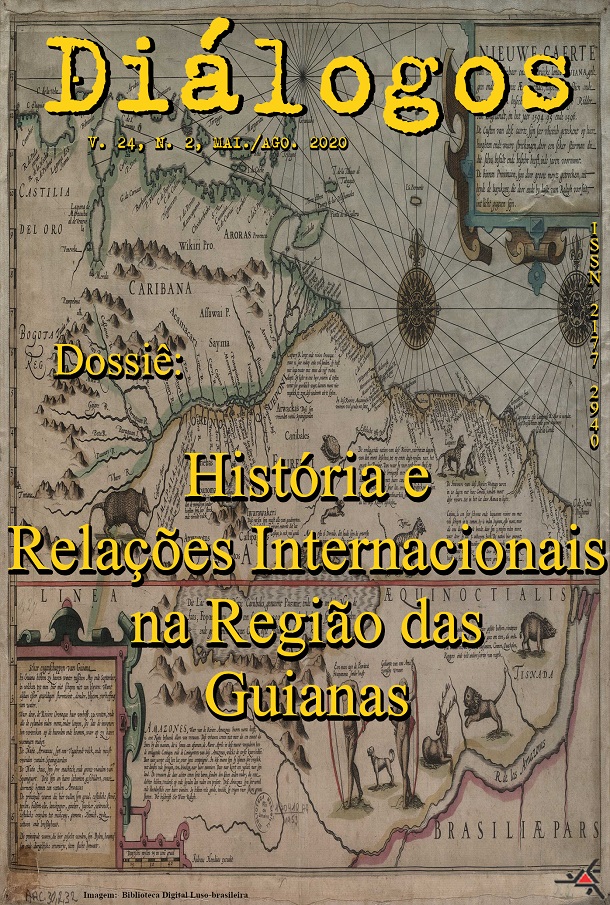 História e relações internacionais na Região das Guianas
Bd. 24 Nr. 2 (2020)
História e relações internacionais na Região das Guianas
Bd. 24 Nr. 2 (2020)É com satisfação que apresentamos o Dossiê “História e relações internacionais na Região das Guianas”: fruto de esforço coletivo e de um longo processo de trabalho que culmina com o lançamento desta edição, composta por um total de oito artigos e uma entrevista que trazem vultosas contribuições sobre a região das Guianas. A pluralidade e complexidade histórica da região são, neste Dossiê, abordadas por acadêmicos da História, Antropologia, Ciência Política, Literatura e Geografia.
-
 International, transcontinental and intrarregional human mobilities: biopower, migrant strategies, and representations (19th to 21st centuries)
Bd. 24 Nr. 1 (2020)
International, transcontinental and intrarregional human mobilities: biopower, migrant strategies, and representations (19th to 21st centuries)
Bd. 24 Nr. 1 (2020)O presente dossiê surge como uma iniciativa de seus coordenadores – Lai Sai Acón Chan e Ronald Soto-Quirós – interessados nas migrações internacionais, e que colaboram conjuntamente em um projeto de recuperação da memória histórica das migrações chinesas na Costa Rica (PREMEHCHI), cuja sede se situa na Universidade da Costa Rica (Costa Rica)[1]: uma equipe internacional pluridisciplinar que reune investigadores da Universidade da Costa Rica, da UNED (Costa Rica), da equipe multidisciplinar sobre América Latina e Península Ibérica (AMERIBER) da Université Bordeaux Montaigne (França), e da University of Minnesota Morris (EUA).
Este dossiê é o primeiro esforço da revista Diálogos, do Departamento de História e do Programa de Pós-graduação em História da Universidade Estadual de Maringá (UEM), por reunir artigos que deverão estar em inglês, e opcionalmente em outra língua, aí incluindo até mesmo o português, com o fim de internacionalizar e facilitar a difusão do conhecimento. Neste caso particular, o dossiê se enfoca no fenômeno das migrações internacionais – ou mobilidades humanas internacionais – tratado sob o olhar de especialistas de disciplinas muito diversas (história, sociologia, ciências políticas, estudos culturais, cinema, etc.) e de horizontes acadêmicos muito variados (Costa Rica, Honduras, Estados Unidos, França e Espanha).
Nesse sentido, nosso dossiê se divide em quatro eixos principais. O primeiro eixo se interessa nos casos históricos das mobilidades humanas consideradas como diásporas internacionais transcontinentais, sua relação com dispositivos de biopoder, as diferentes estratégias dos indivíduos nos países de recepção e as representações que se geram entorno dos indivíduos ou populações migrantes. Uma segunda parte analisa as mobilidades humanas e sua incidência e relação na criação de narrativas identitárias, nacionais e homogeneizadoras, e as eventuais ferramentas biopolíticas institucionais de controle que se geram. Uma terceira seção do dossiê aborda mais especificamente o tema da mobilidade humana intraregional continental com interpretação histórica, mas enfatizando em casos muito contemporâneos – assim se voltam a analisar os discursos enunciados, os mecanismos de biopoder e as subjetividades implicadas. Finalmente, um último eixo de trabalho se enfoca nas representações nas artes visuais (cinema e televisão) de diferentes tipos de mobilidade humana e em espaços geográficos e cronológicos muito diversos.
[1] Sobre este proyecto PREMEHCHI, podemos dirigirnos a: http://premehchi.ucr.ac.cr/
-
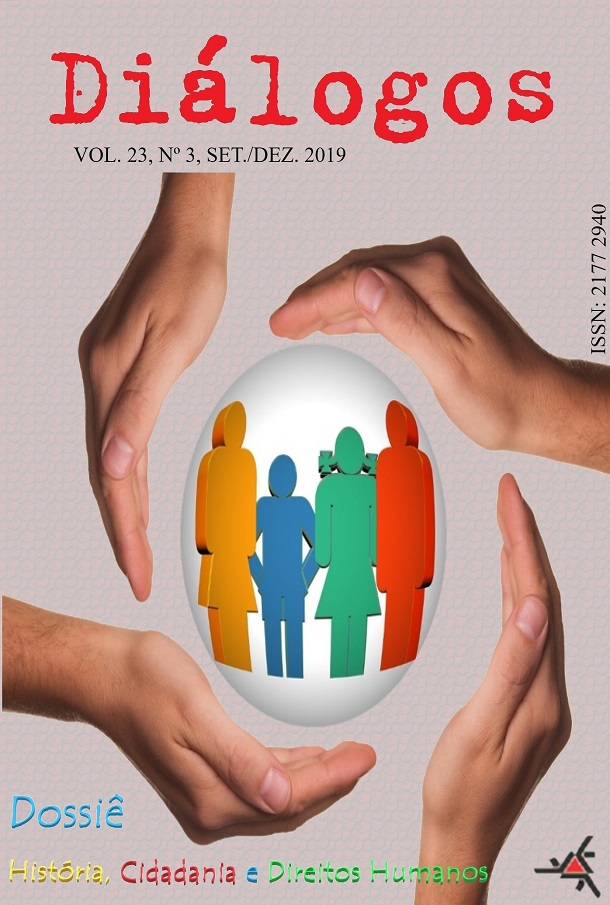 Dossiê: História, cidadania e direitos humanos
Bd. 23 Nr. 3 (2019)
Dossiê: História, cidadania e direitos humanos
Bd. 23 Nr. 3 (2019)A história da América Latina e, especialmente, dos países do Cone Sul, é eivada de traços autoritários e de desrespeito aos direitos humanos. Mas, diante deste histórico autoritário, com lutas e resistências, as sociedades latino-americanas vão construindo a sua cidadania, consolidando e ampliando os seus direitos fundamentais e fortalecendo a democracia. Não, sem solavancos, evidentemente. Vejam o caso do Brasil atual. E são esses solavancos que nos impelem a problematizar e pesquisar o tema da cidadania e dos direitos humanos. Estudar e defender os direitos humanos são uma vital necessidade da sociedade atual, como também o é defender o Estado Democrático de Direito, nesta luta incessante pela democracia e pela cidadania.
As pesquisas aqui apresentadas vão ao encontro destas inquietações. Neste dossiê são dez artigos. Três de pesquisadores argentinos e sete de pesquisadores brasileiros. Mas todos dialogando entre os temas e as questões apresentadas. A ordem dos artigos, quando possível, foi organizada cronologicamente. -
 Dossiê: História e Literatura
Bd. 23 Nr. 2 (2019)O presente dossiê teve como intuito selecionar artigos que propusessem diálogos tanto na metodologia do estudo quanto na análise da literatura considerada em suas dimensões históricas e culturais. Abordagens e perspectivas que desenvolvessem a análise de obras, formas e expressões literárias com atenção aos contextos subjacentes sejam do processo, da produção, da autoria, das práticas, do público e da recepção, da crítica e da teoria.
Dossiê: História e Literatura
Bd. 23 Nr. 2 (2019)O presente dossiê teve como intuito selecionar artigos que propusessem diálogos tanto na metodologia do estudo quanto na análise da literatura considerada em suas dimensões históricas e culturais. Abordagens e perspectivas que desenvolvessem a análise de obras, formas e expressões literárias com atenção aos contextos subjacentes sejam do processo, da produção, da autoria, das práticas, do público e da recepção, da crítica e da teoria. -
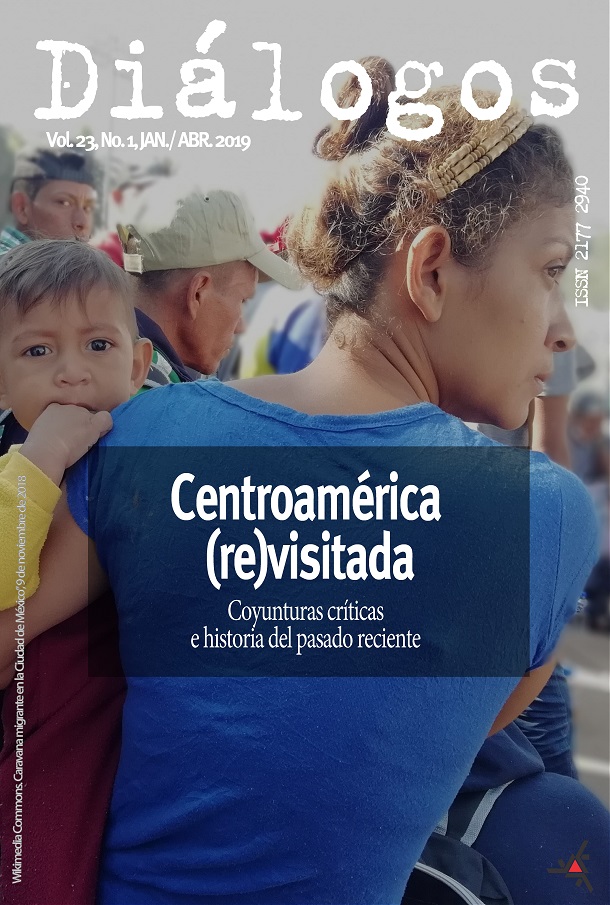 Centroamérica (re)visitada: coyunturas críticas e historia del pasado reciente
Bd. 23 Nr. 1 (2019)En el dossier “Centroamérica revisitada”, investigadores e investigadoras centroamericanos y mexicanos, que trabajan desde la región y desde Francia, presentan trabajos novedosos, con perspectiva de historia y análisis regional comparado; de historia nacional y de historia y análisis transnacional y transnacionalista; de crítica literaria y de cine, para aproximarse a la comprensión de la historia reciente de la región. Desde estas perspectivas interdisciplinarias, la primera parte del Dossier está conformada por trabajos que se centran en visiones regionales comparadas y la segunda, en estudios de caso, en ambos casos en contexto transnacional. Por lo tanto, la reunión de estos trabajos constituye un esfuerzo de cooperación académica internacional e inter-institucional, donde participan la Universidad de Costa Rica, la Universidad de Burdeos, la Universidad de Angers, la Universidad de Savoie Mont Blanc y la Universidad de Maringá.
Centroamérica (re)visitada: coyunturas críticas e historia del pasado reciente
Bd. 23 Nr. 1 (2019)En el dossier “Centroamérica revisitada”, investigadores e investigadoras centroamericanos y mexicanos, que trabajan desde la región y desde Francia, presentan trabajos novedosos, con perspectiva de historia y análisis regional comparado; de historia nacional y de historia y análisis transnacional y transnacionalista; de crítica literaria y de cine, para aproximarse a la comprensión de la historia reciente de la región. Desde estas perspectivas interdisciplinarias, la primera parte del Dossier está conformada por trabajos que se centran en visiones regionales comparadas y la segunda, en estudios de caso, en ambos casos en contexto transnacional. Por lo tanto, la reunión de estos trabajos constituye un esfuerzo de cooperación académica internacional e inter-institucional, donde participan la Universidad de Costa Rica, la Universidad de Burdeos, la Universidad de Angers, la Universidad de Savoie Mont Blanc y la Universidad de Maringá. -
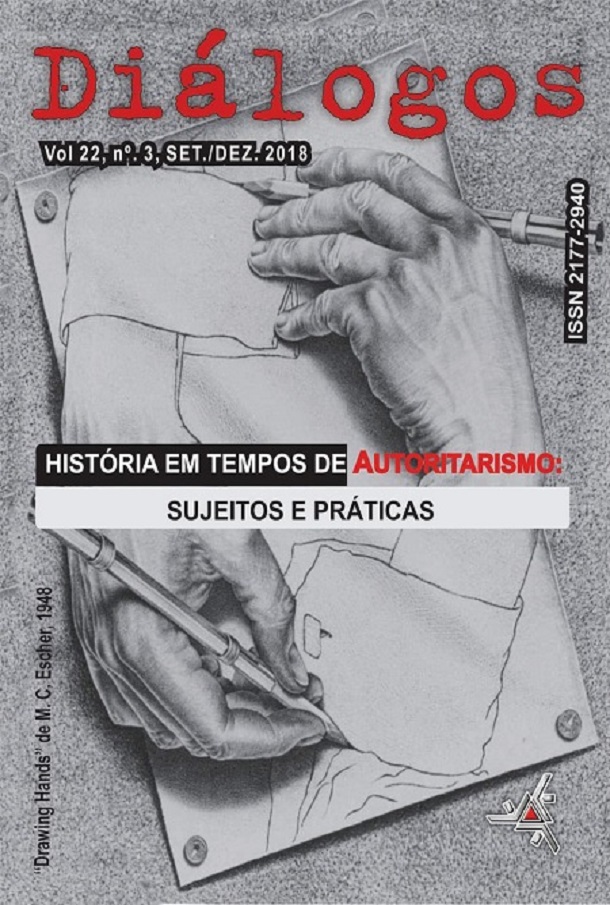 História em tempos de autoritarismo: sujeitos e práticas
Bd. 22 Nr. 3 (2018)Para o VIII Congresso Internacional de História e a XXII Semana de História da Universidade Estadual de Maringá realizado de 9 a 11 de outubro de 2017, objetivou-se tratar de centenários como da Revolução Russa, Revolução Mexicana, Primeira Greve Geral do Brasil e aparição de Nossa Senhora de Fátima em Portugal. Neste contexto pensou-se em uma mesa de discussão sobre ensino e aprendizagem histórica, considerando mais de um século de implementação da disciplina da História no âmbito da escola pública. Nestes aproximadamente cem anos, a resposta para a questão “Para quê ensinar História?”, configurou-se em diferentes modelos. Mérito da organização do evento foi pensar em uma discussão que refizesse esta pergunta, especialmente quando se tem consciência de que nosso contexto histórico está permeado pela irracionalidade histórica na sua interface com o desrespeito e incompreensão sobre o Outro.
História em tempos de autoritarismo: sujeitos e práticas
Bd. 22 Nr. 3 (2018)Para o VIII Congresso Internacional de História e a XXII Semana de História da Universidade Estadual de Maringá realizado de 9 a 11 de outubro de 2017, objetivou-se tratar de centenários como da Revolução Russa, Revolução Mexicana, Primeira Greve Geral do Brasil e aparição de Nossa Senhora de Fátima em Portugal. Neste contexto pensou-se em uma mesa de discussão sobre ensino e aprendizagem histórica, considerando mais de um século de implementação da disciplina da História no âmbito da escola pública. Nestes aproximadamente cem anos, a resposta para a questão “Para quê ensinar História?”, configurou-se em diferentes modelos. Mérito da organização do evento foi pensar em uma discussão que refizesse esta pergunta, especialmente quando se tem consciência de que nosso contexto histórico está permeado pela irracionalidade histórica na sua interface com o desrespeito e incompreensão sobre o Outro. -
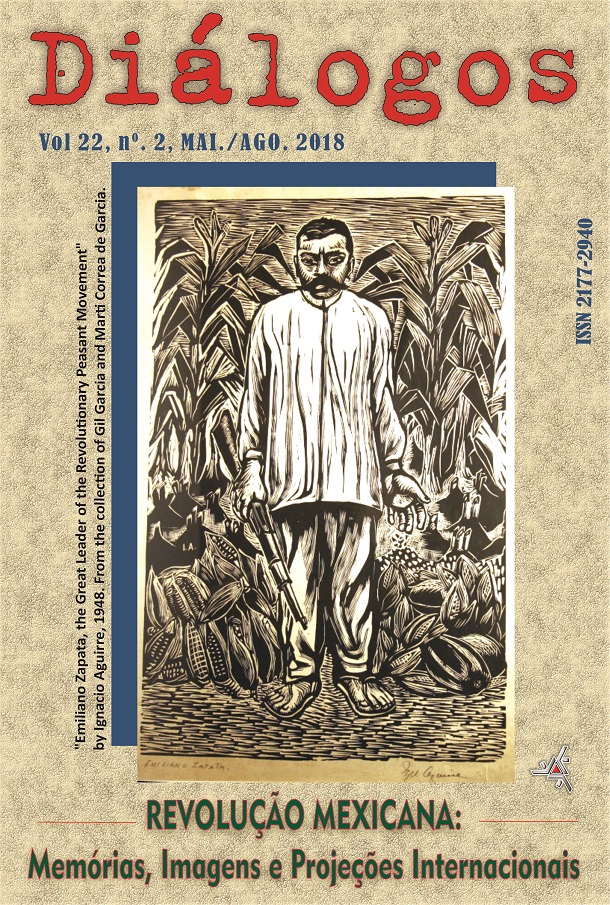 Revolução mexicana: memórias, imagens e projeções internacionais
Bd. 22 Nr. 2 (2018)Os artigos que integram esta seção foram originalmente apresentados em uma mesa redonda intitulada “Revolução mexicana: imagens, memórias, narrativas oficiais e leituras internacionais”, no VIII Congresso Internacional de História da Universidade Estadual de Maringá, em 2017. A temática central do congresso foram os centenários de importantes acontecimentos históricos mundiais e nacionais que então se comemoravam, tais como a Revolução Russa de 1917 e a primeira greve geral no Brasil. Nesse contexto das efemérides centenárias de 2017 também ganhou destaque a Revolução Mexicana, cuja Constituição de 1917, originada do processo revolucionário iniciado em 1910, tornou-se uma referência mundial em termos de direitos sociais e trabalhistas. A mesa redonda sobre o México procurou contemplar não apenas esse aspecto, mas também outras importantes dimensões da construção histórica da Revolução de 1910 no México e de suas projeções políticas e culturais principalmente no cenário latino-americano.
Revolução mexicana: memórias, imagens e projeções internacionais
Bd. 22 Nr. 2 (2018)Os artigos que integram esta seção foram originalmente apresentados em uma mesa redonda intitulada “Revolução mexicana: imagens, memórias, narrativas oficiais e leituras internacionais”, no VIII Congresso Internacional de História da Universidade Estadual de Maringá, em 2017. A temática central do congresso foram os centenários de importantes acontecimentos históricos mundiais e nacionais que então se comemoravam, tais como a Revolução Russa de 1917 e a primeira greve geral no Brasil. Nesse contexto das efemérides centenárias de 2017 também ganhou destaque a Revolução Mexicana, cuja Constituição de 1917, originada do processo revolucionário iniciado em 1910, tornou-se uma referência mundial em termos de direitos sociais e trabalhistas. A mesa redonda sobre o México procurou contemplar não apenas esse aspecto, mas também outras importantes dimensões da construção histórica da Revolução de 1910 no México e de suas projeções políticas e culturais principalmente no cenário latino-americano. -
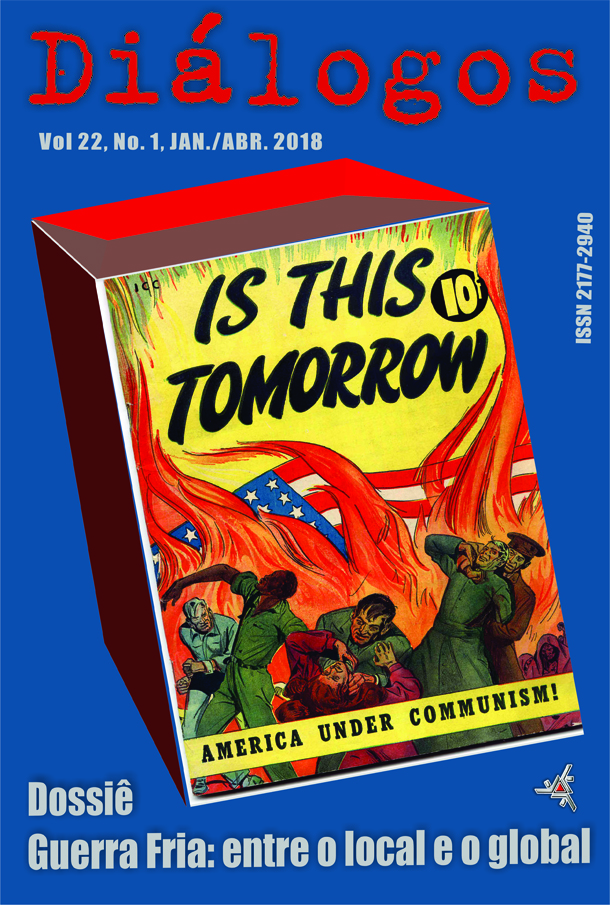 Dossiê - Guerra Fria: entre o local e o global
Bd. 22 Nr. 1 (2018)Este dossiê reúne artigos produzidos por conta do simpósio internacional “Guerra Fria: entre o local e o global”, promovido pelo Instituto de Estudos Estratégicos da Universidade Federal Fluminense (INEST-UFF) em setembro de 2017, com apoio e financiamento da CAPES. Os artigos nele reunidos pretendem apresentar casos específicos das articulações entre questões locais e globais durante a Guerra Fria.
Dossiê - Guerra Fria: entre o local e o global
Bd. 22 Nr. 1 (2018)Este dossiê reúne artigos produzidos por conta do simpósio internacional “Guerra Fria: entre o local e o global”, promovido pelo Instituto de Estudos Estratégicos da Universidade Federal Fluminense (INEST-UFF) em setembro de 2017, com apoio e financiamento da CAPES. Os artigos nele reunidos pretendem apresentar casos específicos das articulações entre questões locais e globais durante a Guerra Fria.



